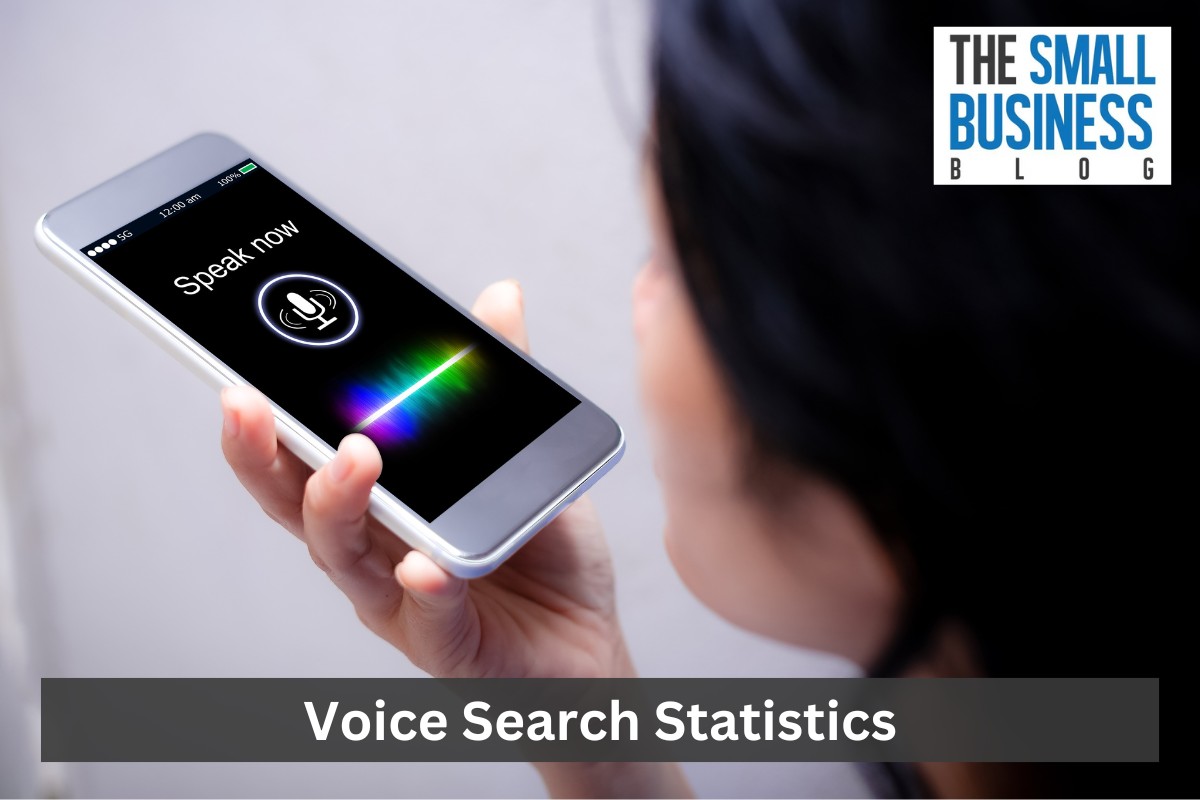As a marketer, brand, or business, are you including or considering adding voice search to your SEO marketing strategy?
If not, these voice search statistics we researched for this article may convince you that it’s well worth it.
Voice search technology is growing by leaps and bounds.
This has much to do with the fact that voice recognition is growing at a rapid rate these days.
The following statistics will show you how voice search is being done today, how, why, where, and how much it’s being used.
In this article, we will discuss the state of the voice search (digital assistant) sector to shed light on how effective and important it may be for your SEO ranking in this market.
Some of this data may surprise you, while other data may seem benign or known to you.
Let’s find out if you may need to add voice search to your SEO strategy.
Post Contents
- 1 Key Statistics
- 2 Top Voice Search Statistics in 2024
- 2.1 1. There are 4.2 billion voice assistants being used.
- 2.2 2. 50% of America’s population uses voice search every day.
- 2.3 3. 71% of consumers said they favor voice search over typed search queries.
- 2.4 4. In 2019, 58% of consumers used voice search technology to find local businesses.
- 2.5 5. 52% of Americans have their voice search device in the living room.
- 2.6 6. In 2018, 52.8% of people said they use voice search while driving.
- 2.7 7. Almost 40% of voice assistant users say they make a purchase after hearing a voice advertisement.
- 2.8 8. Digital assistants Google Assistant and Siri each have a share of 36% of users.
- 2.9 9. A massive 65% of Google Home and Amazon Echo owners said they can’t imagine not having their smart speaker.
- 2.10 10. Data shows that 27% of the world’s online population uses mobile voice search.
- 2.11 11. In 2018 over one billion voice searches occurred per month on average.
- 2.12 12. 22.8% of SEO pros say that voice search SEO is an emerging and influencer strategy.
- 2.13 13. Voice search has already achieved more than $2 billion in sales globally.
- 2.14 14. Voice search results take only 4.6 seconds to generate.
- 2.15 15. By 2024, it’s predicted that global smart speaker sales will surpass $30 billion (USD).
- 2.16 16. 40.7% of voice search results returned are from featured snippets.
- 2.17 17. 24% of Americans between 18 and 29 years old have a smart speaker.
- 2.18 18. Over 70% of websites that rank well on Google voice search are HTTPS secure.
- 2.19 19. As of 2022, NPR and Edison research revealed that smart phone ownership in America has a share of 35%.
- 2.20 20. Weekly podcast requests via smart speaker have increased by 22% in 5 years.
- 3 FAQs
- 4 Conclusion
Key Statistics
- There are 4.2 billion voice assistants being used.
- 50% of America’s population uses voice search every day.
- 71% of consumers said they favor voice search over typed search queries.
- 58% of consumers use voice search technology to find local businesses.
- 52% of Americans have their voice search device in the living room.
- 52.8% of people said they use voice search while driving.
- Almost 40% of voice assistant users say they make a purchase after hearing a voice advertisement.
- Digital assistants Google Assistant and Siri each have a share of 36% of users.
- 65% of Google Home and Amazon Echo owners said they can’t imagine not having their smart speaker.
- Data shows that 27% of the world’s online population uses mobile voice search.
Top Voice Search Statistics in 2024

Let’s look at voice assistants and voice search for your consideration.
1. There are 4.2 billion voice assistants being used.
In 2020, Statista reported that there were 4.2 billion voice assistants being used across the globe.
Moreover, the projection for 2024 is that there will be 8.4 billion digital voice assistants available worldwide.
(Statista)
2. 50% of America’s population uses voice search every day.
One study revealed that at least half (50%) of the population in the United States is using voice search technology daily.
Furthermore, 34% of people living in the United States say they use voice search at least once a week.
(Oberlo)
3. 71% of consumers said they favor voice search over typed search queries.
If nothing else convinces you to upgrade and optimize your website to make it voice search friendly, this statistic should.
In 2018, PwC research revealed that 71% of consumers prefer voice search over typed search.
(Oberlo, PwC)
4. In 2019, 58% of consumers used voice search technology to find local businesses.
If you own a local business, this data shows that 58% of the time, voice search is used to find local businesses.
This is a huge revelation and should encourage you to ensure your website and content is all easily found via voice search.
(Forbes, PR Newswire)
5. 52% of Americans have their voice search device in the living room.
Over half (52%) of Americans who use digital assistants for voice search at home keep their device in their living room.
This data was taken from a Think with Google article written in 2018 by Sara Kleinberg.
(Backlinko, Think with Google)
6. In 2018, 52.8% of people said they use voice search while driving.
In a survey conducted by HigherVisibility among 2,017 mobile phone users, 52.8% responded that they use voice search while they are driving.
This is the highest usage found so far for the use of voice assistant technology.
(Social Media Today)
7. Almost 40% of voice assistant users say they make a purchase after hearing a voice advertisement.
According to data, almost 40% of people who use voice search technology said they bought something after hearing an advertisement.
This correlates with the 38% of consumers who say voice ads are less intrusive.
(Oberlo)
8. Digital assistants Google Assistant and Siri each have a share of 36% of users.
The two most popular digital assistants as of 2019 are Google Assistant and Siri.
Each one has an equal 36% user share in the digital assistant market, according to Statista.
Alexa has a 25% user share and Microsoft Cortana has a 19% share of users in this sector.
(SerpWatch, Statista²)
9. A massive 65% of Google Home and Amazon Echo owners said they can’t imagine not having their smart speaker.
A GeoMarketing study revealed that a whopping 65% of people who own an Amazon Echo, or a Google Home smart speaker system said they can’t imagine living without it now.
These smart speaker users wouldn’t want to go back to before they had their digital assistant speakers for voice search, etc.
(Thrive My Way)
10. Data shows that 27% of the world’s online population uses mobile voice search.

Over one quarter of the globe’s online population is using mobile voice search to search the web.
That figure is 27% of the world’s population that is using voice search technology online via mobile devices.
This isn’t exactly the “takeover” expected by analysts, but it doesn’t negate the fact that this figure is impressive.
(Oberlo, Think with Google²)
11. In 2018 over one billion voice searches occurred per month on average.
In 2018, analytical data showed that one billion voice searches were conducted per month on average.
In 2021, Google users conducted 63,000 searches per second and voice assistant users used voice searches 3.1 billion times per month.
(SerpWatch, Thrive My Way)
12. 22.8% of SEO pros say that voice search SEO is an emerging and influencer strategy.
According to 22.8% of SEO experts, voice search is becoming one the most important and emerging influencer solutions for brands and businesses today.
The above statistics show the how, where, what, and percentages of consumers using voice search confirm this.
(Demand Sage)
13. Voice search has already achieved more than $2 billion in sales globally.
According to analytical data, voice search has already generated over $2 billion (USD) in sales.
Engaging in SEO for voice search is obviously a financially beneficial way to market your brand or business.
Even though voice search has only just begun to reach popularity, it has already generated over $2 billion (USD) in sales.
(WebFX)
14. Voice search results take only 4.6 seconds to generate.
Since voice search technology has been out long enough now, we know how efficient it is.
For instance, it takes a short 4.6 seconds for a voice search query to generate results.
Compare that with the 8.8 seconds for a typed search query.
(Thrive My Way)
15. By 2024, it’s predicted that global smart speaker sales will surpass $30 billion (USD).
Global Market Insights reported that global market smart speaker sales are expected to surpass $30 billion (USD) in sales by 2024.
This data was predicted in 2018, so we shall see if it comes true soon enough.
(GMI)
16. 40.7% of voice search results returned are from featured snippets.
Statistics related to voice search show us that 40.7% of voice search return results come from featured snippets.
Featured snippets are, in fact, one of the most important factors for voice search.
Most of the time, these results contain the most direct and precise answers to queries.
(Brafton)
17. 24% of Americans between 18 and 29 years old have a smart speaker.
Americans between 18 and 24 years old have helped to drive the voice technology ideal adoption rates the most.
Also, 65% of people within the 25 to 49 age demographic use voice-enabled devices at least daily.
(SerpWatch, Thrive My Way)
18. Over 70% of websites that rank well on Google voice search are HTTPS secure.

It’s helpful for brands, businesses, and marketers to know that 70% of all the websites that rank on Google Voice search are HTTPS secure.
Moreover, pages that rank for voice search are loading 52% faster than typed queries (see the data in number 14).
(Yaguara)
19. As of 2022, NPR and Edison research revealed that smart phone ownership in America has a share of 35%.
The 2022 Smart Audio Report revealed that 35% of people in America aged 18 and older own a smart speaker.
Additionally, 62% of Americans in this same age group use voice assistant technology on any device upon which it’s enabled.
(NPR)
20. Weekly podcast requests via smart speaker have increased by 22% in 5 years.
Podcasts tend to be one of the top ways people seek entertainment, news, and other information these days.
It makes sense that the weekly requests for podcast listening would increase by 22% over a 5-year period.
(NPR)
FAQs
What is voice search?
Using voice search technology means you speak your search query into your device to reveal results.
Devices can include smart speakers (Echo, Alexa, etc.), smartphones (iOS, Android, etc.), or your car dashboard may offer voice assistants.
Voice-activated devices are becoming more popular and available across the world.
How does voice search work?
Voice-enabled devices make using voice search easy.
Due to the advancements and improvements in voice recognition over the past few years, all you need to do is speak into the device’s microphone.
Your spoken input is then converted into text that can be processed by the preferred search engine (Google, Bing, Yahoo, etc.).
Just like a written search engine query, your voice query will return search results based on what you asked.
What are the benefits of using voice search?
The benefits of using voice search technology include:
1. It’s faster and more convenient than typing words.
2. It provides a hands-free option when you’re engaged in driving, cooking, etc.
3. Most people find it more natural and easier to speak rather than to type.
4. You can use voice search even in noisy settings where it’s challenging to type words.
What are the limitations of using voice search?
The limitations of voice search technology include:
1. It may not always be as accurate as a typed query.
2. It’s more challenging for complex search queries.
3. Not all settings are suitable for using voice assistants.
Is there a way to optimize my website for voice search?
Yes.
There is a way to make your website voice search friendly.
Here are some ways you can accomplish this task:
1. Use natural language in your content.
2. Use keywords that people are most apt to use in voice searches.
3. Format your website content to make it easy enough for voice assistants to understand and process.
4. Try using Schema markup to help Google better understand your web content.
What does the future hold for voice search technology?
Voice search technology has been around long enough now to be more efficient than ever.
Because of its better functionality, it’s become more popular in recent years.
It’s unlikely that voice search will be trailing off any time soon.
Here are some voice search trends you can expect for the future:
1. Higher accessibility in voice-assisted technology in devices like televisions, appliances, and vehicles.
2. The continued development of natural language processing methods to make voice searches more efficient and accurate.
3. The ability to use voice search technology for complex tasks like booking appointments and making online purchases.
Conclusion
Considering that some of these statistics are from 2018-2023, imagine how the most recent would be higher in usage of voice search technology if studies were done today.
Now that you have seen the impact of voice search and how optimizing your website for voice search will boost your rankings, what will you do?
We understand that it requires more than just a little encouragement to make changes to your marketing strategies.
However, these statistics should point you in the direction you need to go in terms of voice search SEO and website optimization.
As the statistics show, most voice search activities have increased in recent years across devices and among location, age, gender, and other demographics.
We hope you have enjoyed reading this voice search statistics article and that you have gained some enlightenment on how it may help boost your rankings and your business.






























